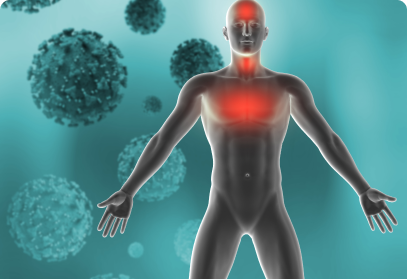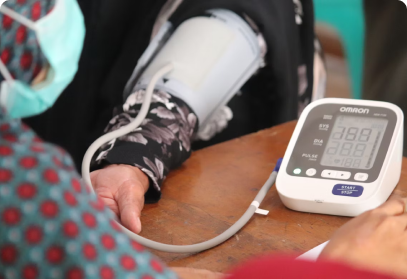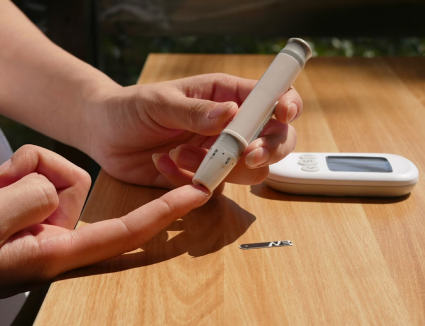Understanding Menopause: Symptoms, Treatment, and Lifestyle Tips

Menopause is a natural phase in a woman’s life, marking the end of menstrual cycles and a shift in hormone levels. While it is a normal biological process, the changes that accompany menopause can affect a woman’s physical, emotional, and mental well-being. Understanding the symptoms, treatment options, and lifestyle modifications can make this transition smoother and healthier. At City Care Clinic, we provide personalized care for women navigating menopause, ensuring their journey is supported with professional expertise and compassion.
What is Menopause?
Menopause typically occurs between the ages of 45 and 55, though the exact timing varies from woman to woman. It is diagnosed after a woman has gone 12 consecutive months without a menstrual period. Menopause occurs due to a natural decline in the production of estrogen and progesterone hormones by the ovaries.
This hormonal change is not just about the cessation of menstruation; it affects various bodily systems, including the cardiovascular system, bones, skin, and even mental health. Recognizing menopause and its symptoms early can help women manage the transition more effectively.
Common Symptoms of Menopause:
Menopause symptoms can vary in intensity and duration. Some women may experience mild discomfort, while others may face more challenging physical and emotional changes.
Common symptoms include:
1. Hot Flashes and Night Sweats
Hot flashes are sudden feelings of heat, often accompanied by sweating and redness of the skin. Night sweats can disrupt sleep, leading to fatigue and mood changes.
2. Mood Swings and Anxiety
Hormonal fluctuations can cause irritability, mood swings, anxiety, or even depression. Emotional well-being is as important as physical health during menopause.
3. Sleep Disturbances
Many women experience difficulty falling asleep or staying asleep due to night sweats or hormonal changes, which can affect overall energy levels.
4. Physical Changes
- Weight gain, especially around the abdomen
- Thinning hair or hair loss
- Dry skin and reduced elasticity
- Changes in breast tissue or vaginal dryness
5. Cognitive Changes
Some women report difficulties with concentration or short-term memory, often referred to as “brain fog.”
Understanding these symptoms is the first step toward effective management. City Care Clinic helps women recognize early signs and provides tailored solutions to address them.
Health Risks During Menopause:
While menopause is a natural process, the associated hormonal changes can increase the risk of certain health issues:
1. Osteoporosis
Declining estrogen levels can lead to decreased bone density, making bones weaker and more susceptible to fractures. Regular bone density screening is essential for early detection and prevention.
2. Cardiovascular Health
Post-menopausal women have a higher risk of heart disease. Changes in cholesterol levels, blood pressure, and vascular health require regular heart check-ups and preventive care.
3. Mental Health Challenges
Hormonal shifts can trigger anxiety, depression, or mood disorders. Emotional support, therapy, and counseling play a critical role in managing these changes.
By addressing these risks proactively, women can maintain better overall health during and after menopause.
Treatment Options for Menopause
At City Care Clinic, we provide a wide range of treatment options based on individual needs:
1. Hormone Replacement Therapy (HRT)
HRT is one of the most effective treatments for relieving hot flashes, night sweats, and mood swings. Our specialists carefully evaluate your health history before recommending HRT to ensure safety and effectiveness.
2. Non-Hormonal Medications
For women who cannot undergo HRT, non-hormonal medications can help manage specific symptoms, including sleep disturbances, mood swings, and hot flashes.
3. Alternative and Complementary Therapies
- Herbal supplements (under medical supervision)
- Acupuncture
- Mind-body practices like yoga and meditation
4. Counseling and Support Groups
Emotional well-being is critical. Counseling sessions and support groups help women share experiences, learn coping strategies, and reduce feelings of isolation.
Lifestyle and Nutrition Tips for Menopause:
Lifestyle changes can significantly improve the quality of life during menopause. Our specialists provide guidance on practical steps that support overall health:
1. Balanced Diet
- Include calcium-rich foods like dairy, leafy greens, and fortified products to support bone health.
- Incorporate lean proteins, whole grains, and fruits and vegetables for energy and heart health.
- Limit sugar, salt, and processed foods to manage weight and cardiovascular risk.
2. Regular Physical Activity
- Weight-bearing exercises like walking, jogging, or strength training help maintain bone density.
- Yoga and stretching improve flexibility, reduce stress, and enhance mental wellness.
- Cardiovascular exercises promote heart health and maintain overall fitness.
3. Stress Management
- Meditation, deep-breathing exercises, and mindfulness techniques can reduce anxiety and improve emotional well-being.
- Counseling or therapy can help women cope with mood swings and depression.
4. Sleep Hygiene
- Maintain a consistent sleep schedule
- Keep the bedroom cool and dark to reduce night sweats
- Avoid caffeine and heavy meals close to bedtime
How City Care Clinic Supports Women Through Menopause
At City Care Clinic, we understand that menopause is a unique journey for every woman. Our approach includes:
- Personalized Consultations – Every patient receives individualized care based on symptoms, health history, and lifestyle.
- Monitoring and Follow-Ups – Regular check-ups help track progress and adjust treatment plans as needed.
- Comprehensive Support – We address physical, emotional, and mental well-being, ensuring holistic care.
- Expert Team – Our specialists are trained in the latest menopause treatments and provide compassionate guidance.
By combining medical expertise with personalized care, we help women navigate menopause confidently and comfortably.
Conclusion:
Menopause is a significant life stage that brings physical, emotional, and mental changes. Understanding the symptoms, being aware of potential health risks, and adopting healthy lifestyle practices can make this transition smoother. At City Care Clinic, we provide comprehensive menopause care, combining medical treatment, lifestyle guidance, and emotional support to help women maintain a high quality of life.
Take the first step toward better health today. Book your personalized menopause consultation at City Care Clinic and experience expert care tailored to your needs.






.png)
.png)
.png)
.png)

.png)